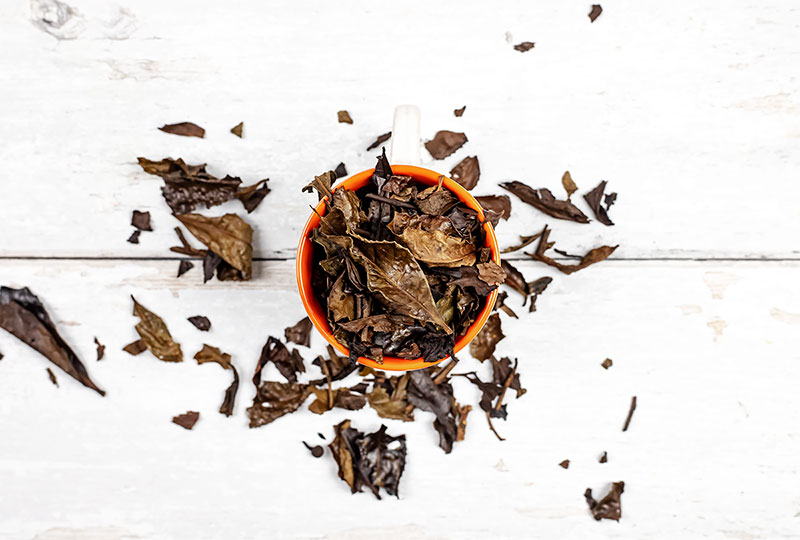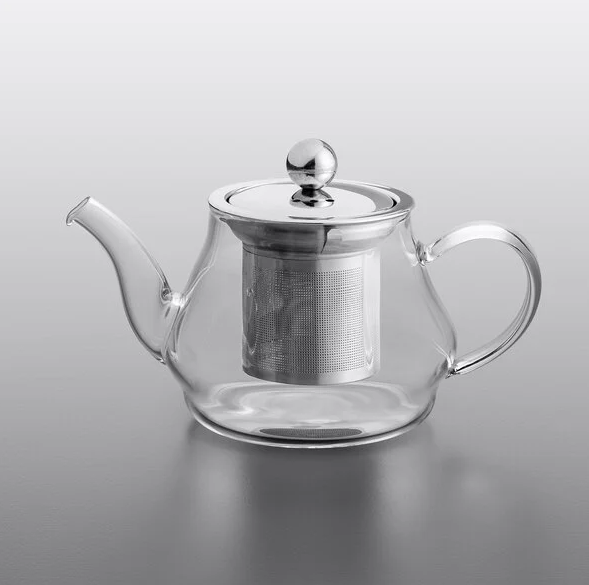Fermented Tea Guide
The word “fermented tea” may sound mysterious, but there’s a chance you’ve already tried it. In fact, fermented tea is not only very common, but highly popular too. So what exactly is fermented tea? Keep reading.

What is fermented tea?
Fermented tea is any tea that went through the fermentation process. Fermentation can be natural or accelerated, but it’s always done in controlled environments or under specific conditions. Fermentation can last from several weeks, month, years or even decades. Fermented tea will always be made with real tea leaves, and it’s actually a very old type of tea. It’s been around for hundreds, if not thousands of years. Although many fermented teas share some health benefits with other teas, their main advantage is in the presence of beneficial fungus and bacteria. Many are considered great for weight loss and boosting metabolism and may provide numerous other benefits as well. The exact benefits will, of course, depend not only on the type of fermented tea, but on the exact tea and how it was made, aged, stored and brewed. The most popular types of fermented tea are:1. Pu’erh tea
Pu’erh is a type of Chinese dark tea from Yunnan. Dark tea is one of the 6 main types of tea. It’s made from Camellia sinensis tea leaves that undergo a natural or accelerated fermentation. Naturally fermented pu’erh tea is called raw pu’erh, or aged raw pu’erh. The other type of ripe pu’erh, or dark pu’erh. Dark pu’erh is often available in loose leaf style, while raw pu’erh will almost always be compressed into different shapes and left to age. Uncompressed raw pu’erh is called maocha. Learn more about pu’erh tea here.2. Other dark tea
Pu’erh is a dark tea, but it’s a specific dark tea from Yunnan. Other Chinese provinces and even other countries are making dark tea too. All other dark fermented tea that’s not from Yunnan is simply called dark tea. For example, Liu An dark tea from Chinese Anhui province or dark tea from Malawi. Although always present, fungi won’t be visible on most dark tea leaves. However, there’s a special type of dark tea from Hunan province in China shaped in bricks with a special type of visible yellow fungus called a golden flower. It’s one of rare teas where you can actually see the fungi. Japan, a country known for producing extraordinary green teas, is producing fermented teas too. They are rare and made only on a few locations, and very unique. Some of the most popular Japanese fermented teas are Awabancha, Batabatacha and Goishicha. These teas look very different from regular compressed dark teas. For example, Awabancha has very big, dark brown, strong glossy leaves and a flavor more similar to roasted hojicha than regular fermented dark teas.
3. Kombucha
Kombucha or mushroom tea is the third type of fermented tea. It’s available in dozens of flavors and it’s one of the most popular functional drinks in the world [1]. Kombucha is a drink made with real tea leaves, sugar, water and scoby – or a “symbiotic association of bacteria and yeasts. [2]” Scoby forms during sugar and black tea fermentation and is further used for making a tea - kombucha - that may provide many health benefits. Although kombucha can be made with herbal tea too, scoby is always made from black tea. Learn how to make your own kombucha at home here.Fermented tea vs kombucha?
Both dark tea and kombucha are fermented teas, but unlike dark teas made purely from Camellia sinensis tea leaves, kombucha is made from tea leaves, sugar and water. Kombucha is, therefore, available only as an already brewed drink. It’s one of the most popular functional drinks in the world, and it’s been around for thousands of years. Dark tea, too, has been around for a long time. Some dark fermented teas can be aged for a hundred of years. Usually, the older the tea, the more expensive it will be. Difference between regular dark fermented tea and kombucha are:1. Production method
Fermented tea is made by piling pure tea leaves. Kombucha is made by allowing tea leaves to ferment with sugar in water.2. Ingredients
Fermented tea contains only pure tea leaves and bacteria and fungi that developed over time. Kombucha contains sugar, sometimes alcohol, tea leaves, water and sometimes other ingredients too. Kombucha may be very fizzy, unlike fermented tea that’s never fizzy.3. Age
Dark fermented tea will need ages to ferment, except ripe pu’erh that undergoes a sped up fermentation process. Most dark fermented teas will taste better with age. Kombucha cannot be fermented for too long, and should be stored in the fridge.4. Brewing method
Fermented tea needs to be brewed while kombucha is sold already brewed (unless you are making it at home). Fermented tea is almost always served hot, but kombucha is always served cold. You won’t need a teapot for brewing kombucha, but you will always need a teapot and a cup for brewing dark fermented tea.5. Flavor
Dark fermented tea will usually have an earthy flavor. Ripe pu’erh is more earthy than raw pu’erh, which may have notes of hay, tobacco, leather, smokiness and even fruits, while ripe pu’erh will be more earthy, dark, woody and deep. Kombucha, on the other hand, with taste a bit tangy or sour and crisp, and may be highly carbonated. Pu’erh should never be sweetened, while kombucha may sometimes contain high amounts of sugar.Should you drink fermented tea?
Different tea lovers may choose fermented teas for very different reasons. For example, pu’erh tea, a type of fermented tea from Yunnan is so famous for its exquisite flavors that some tea drinkers will never drink anything except pu’erh. Some bricks, especially those that are old or come from unique locations, may have a very high price and can only be found in private collections. On the other hand, kombucha will be relatively cheap, depending on the ingredients. Dark fermented teas are usually appreciated for their flavor first, then benefits, while kombucha is appreciated for its benefits first, then flavor. However, this doesn’t always need to be case. Dark fermented tea may offer exquisite benefits including aiding weight loss [3], aiding digestion [4] and may provide a great antimutagenic activity[5]. Kombucha too, may provide several benefits including antioxidant and anti inflammatory activity, and improving digestive function [6]. Because both of them are fermented, they may be a source of probiotics and important for gut health and immune system. Both of these types may cause side-effects too, especially if they were aged or produced in an unclean environment. Always buy dark fermented teas and kombucha from reliable sources.Disclaimer: This article is for informational purposes only. It’s not intended to replace medical advice, diagnosis, or treatment. Every person is different and may react to different herbs and teas differently. Never use teas or herbs to treat serious medical conditions on your own. Always seek professional medical advice before choosing home remedies.
References:
[1] https://www.sciencedirect.com/science/article/pii/S1047279718307385 [2] https://onlinelibrary.wiley.com/doi/full/10.1111/1541-4337.12073 [3] https://www.researchgate.net/publication/230599703_The_mechanisms_of_weight-cutting_effect_in_Pu-erh_tea [4] https://www.ncbi.nlm.nih.gov/pmc/articles/PMC4918958/ [5] https://www.ncbi.nlm.nih.gov/pmc/articles/PMC3233424/ [6] https://www.sciencedirect.com/science/article/pii/S1047279718307385
More from:
SLL



Leave a comment